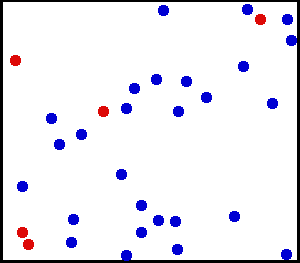“Millions saw the apple fall, but Newton was the one who asked why.” -Bernard Baruch
Take a common, macroscopic object -- like an apple -- and imagine what's going on inside at the level of individual particles. At a small, fundamental scale, they're just bouncing off of one another, rapidly in motion due to the nature of kinetic theory. Each particle has a certain amount of energy, collides with other particles, and on average moves at a specific speed.
If you aligned all these motions -- somehow -- how fast could you get your apple to go? And is the answer you get from doing this at all reasonable, if we could make this ideal situation a reality?
 Image credit: imgflip, https://imgflip.com/gif/n5bxw, taken from this YouTube video: https://www.youtube.com/watch?v=EYP2WZ2EeEk.
Image credit: imgflip, https://imgflip.com/gif/n5bxw, taken from this YouTube video: https://www.youtube.com/watch?v=EYP2WZ2EeEk.

